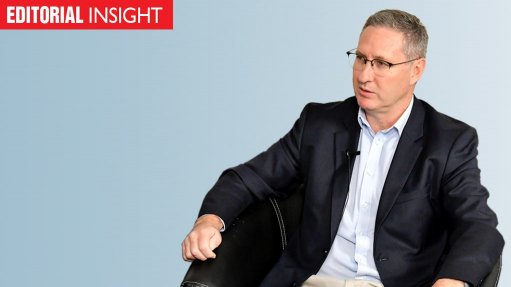
During a recent briefing on the escalating humanitarian crisis in the gas-rich Cabo Delgado province of northern Mozambique, the United Nations High Commissioner for Refugees’ Valentin Tapsoba related that, during his 26 years at the agency, he had “seldom been exposed to such desolation, heard so many tales of violence and seen so many scared looks”.
“The situation in Cabo Delgado is appalling and, if nothing is done soon, we won’t have only 535 000 displaced people, but several hundred thousand more, we won’t have only 2 000 people killed by the conflict, but tens of thousands.”
Tapsoba spoke following a multi-agency UN mission to the territory in December, which precipitated the launch of an appeal to raise $254-million for a 2021 humanitarian response plan.
UN Resident Coordinator in Mozambique Myrta Kaulard reports that conditions in the region are “dire” and are deteriorating further as the rainy season causes flooding that is cutting off certain areas. She says the crisis has escalated dramatically over the past 12 months, with the number of people displaced by the religiously inspired conflict surging from about 90 000 at the start of 2020 to the current estimate of between 500 000 and 565 000.
During its recent mission, the UN was unable to access areas seized by the militants and spoke only to government officials and those who fled their homes and who have sought refuge with host communities in Cabo Delgado, as well as the neighbouring Niassa and Nampula provinces.
The majority of those who have been internally displaced are women and children, who report having witnessed brutal killings, including beheadings, and kidnappings. They also report that their crops and livestock have been stolen and their homes destroyed.
Kaulard says she is extremely worried about the lack of resources available to tackle the humanitarian crisis and indicates that the UN appeal aims to mobilise sufficient resources to provide humanitarian support to about 1.1-million people, including those internally displaced by the conflict and their host communities.
For South Africa, the crisis is inopportune on so many levels: its own fiscal resources are stretched to breaking point; its domestic needs are manifold and have been amplified and exacerbated further by Covid-19; and it has no desire or appetite for a conflict involving a belligerent with ties to Islamic State.
Yet, Mozambique is a close neighbour and the instability will eventually have negative spillover effects – look no further than Zimbabwe for evidence of what happens when South Africa decides to downplay domestic tensions.
What’s more, South Africa’s own economic growth and development are increasingly geared to the fortunes of the region and Mozambique offers huge potential, which is not limited to gas, although the liquefied natural gas projects represent a major opportunity for many South Africa firms.
Every effort should probably be made to avoid becoming entangled in the security situation itself, but given the conflict’s intractable links to the humanitarian and developmental crises, that will be easier said than done.